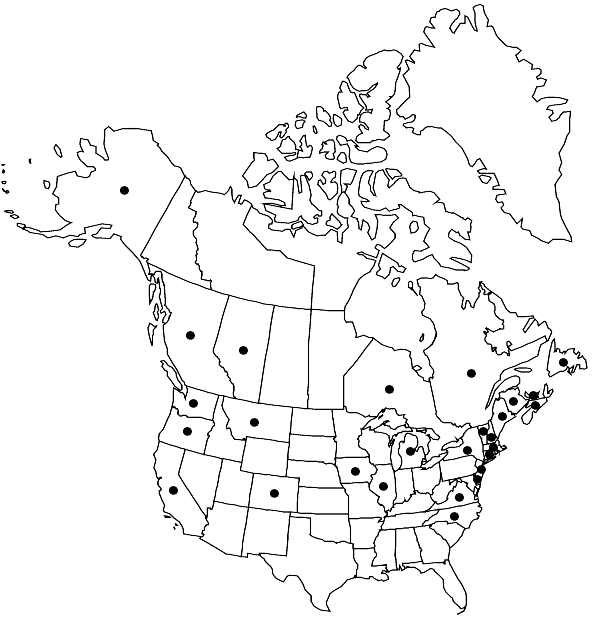Buxbaumia aphylla
Sp. Musc. Frond., 166. 1801,.
Treatment appears in FNA Volume 27. Treatment on page 119.
Seta 4–11 mm, straight. Capsule, when mature, broadly ovoid, 3–7 mm and nearly as wide, rich, glossy, chestnut brown, upper face flattened and sharply differentiated from lower face by a dark brown ridge, oblique or nearly at right angles to seta. Spores 6–8 µm.
Phenology: Capsules mature late spring–fall.
Habitat: Decaying wood, humus, sometimes shallow acid soil and soil depressions on rock outcrops, mainly in well-illuminated to somewhat shaded sites, low to moderate elevations
Distribution
Loading map...

Alta., B.C., N.B., Nfld. and Labr. (Nfld.), N.S., Ont., P.E.I., Que., Alaska, Calif., Colo., Conn., Del., Ill., Iowa, Maine, Mass., Mich., Mont., N.H., N.J., N.Y., N.C., Oreg., Vt., Va., Wash., Europe, Asia, Pacific Islands (New Zealand).
Discussion
Selected References
Lower Taxa
None.
... more about "Buxbaumia aphylla"
Alta. +, B.C. +, N.B. +, Nfld. and Labr. - Nfld. +, N.S. +, Ont. +, P.E.I. +, Que. +, Alaska +, Calif. +, Colo. +, Conn. +, Del. +, Ill. +, Iowa +, Maine +, Mass. +, Mich. +, Mont. +, N.H. +, N.J. +, N.Y. +, N.C. +, Oreg. +, Vt. +, Va. +, Wash. +, Europe +, Asia + and Pacific Islands - New Zealand. +
Decaying wood, humus, sometimes shallow acid soil and soil depressions on rock outcrops, mainly in well-illuminated to somewhat shaded sites, low to moderate elevations +
Sp. Musc. Frond., +
Buxbaumia aphylla +
Buxbaumia +
species +